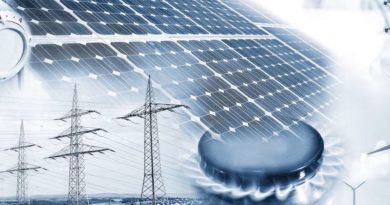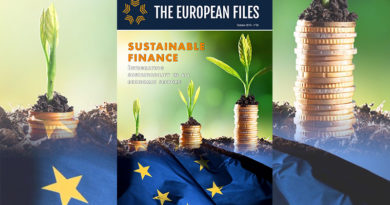
How France Puts Climate First
2020 and 2021 will undoubtedly remain in the history books as the years where Covid-19 dashed through much of the world. But for France, these years will later be looked upon as the time when climate became the cornerstone of much of our policies, both at the national and at the European levels.
Climate as a French national priority
An unprecedented investment designed to pave the way for a more sustainable future
In the fight against climate change, numbers matter.
The French recovery plan was carefully designed to secure a wide range of environmental improvements. This plan served as the stepping stone of an unprecedented environmental effort: almost a third of its investments are meant to lay the groundwork for a greener economy.
Overall, we’re talking about more than 30 billion euros of investment. This comes on top of the Ministry of Environment’s annual budget, which will be of roughly 50 billion euros for the year 2022 alone.
These investments already have a promising – and I believe, enduring – impact. Let me take only one example: for housing, which is the cause of more than 20% of our greenhouse gas emissions and historically difficult to reduce, we have unlocked close to 7 billion euros, which are meant to help the thermal renovation of our homes and buildings.
A landmark law that emphasizes France’s dedication to be at the forefront of the green transition
Beyond these figures, our ambition can be laid out in simple terms: we want to transform the way environmental policy is perceived and conducted in our country. Our goal? To make ecology part of the daily life of all our citizens. To lay out the groundwork for such a change, France has adopted this summer a landmark law: the Climate and Resilience Bill, which is the signature of our current policies.
This bill was prepared and discussed as part of a new democratic experiment. 150 citizens were chosen at random in our country; they were entrusted with the task of designing some imaginative measures that once implemented, would be the catalyst for a new form of environmental democracy, where each citizen acts directly as an agent of change. This initiative, which came to be known as the Citizens’ Climate Convention, was directly designed by our President Emmanuel Macron – and it is a demonstration his dedication to help solve environmental problems more broadly.
Today, this bill is a major improvement for a more resilient and less wasteful society, on a wide range of themes: travel, housing, consumption, strengthening judicial protection of the environment and improving climate and environmental governance.
Climate as a European priority
Climate is a European cause and France will do its best to push it forward
The battle for climate must be fought jointly with our European partners. From the day of its inception, France has supported the European Green Deal and it will continue to. Our President Emmanuel Macron said in 2017 that “Europe must be at the forefront of the efficient and fair ecological transition”. Today, we must make this ambition truer than ever.
In 2019, our President defended a 55% emissions reduction target by 2030, at the opening of the General Assembly of the UN. He played for sure a pioneering role.
Thus, during our presidency of the Council of the European Union, which starts next January, our priority will naturally be to accelerate our common action against climate change. All the texts of the ‘Fit for 55’ package will be discussed in the year to come. France will do its best to push forward these complex proposals and to create the right momentum for the negotiations.
Some priority issues to keep in mind
Like our Climate and Resilience Bill, the ‘Fit for 55’ package is by design cross-sectoral: we need to negotiate quickly (2030 is not so far) but also with coherence and method.
France will help to strengthen the current EU ETS, in order to consolidate the price signal for carbon. We also have to better integrate the large potential of the forests and lands as carbon sinks.
France will work to accelerate the deployment of low-emission vehicles and to help end gradually the sale of new internal combustion vehicles. This will help develop alternative, non-polluting modes of transport.
As such, France puts at the heart of its priorities the necessity of enabling a low-carbon economy that is both sustainable and fair. In this respect, we will be vigilant to ensure that the efforts required are bearable, that several forms of support will be provided to households, so that the transition to a greener economy will be seen for what it is – an opportunity for our well-being, not a threat.
France will also push forward the long-awaited creation of a border carbon adjustment mechanism. I truly think that this mechanism is one of the keys to limiting the risk of carbon leakage, to consolidating the decarbonization of the industry; moreover, it clearly helps to evaluate the real carbon footprint of the Europeans.
Another important issue we wish to address during the French Presidency is the protection of biodiversity, both terrestrial and marine. I would like us to make clear progress in discussions with our European partners on binding targets for 2030 to restore biodiversity.
Last but not least, I would also like the EU to give strong signals to take concrete measures and actions to fight against imported deforestation, which is a major and long-standing concern for France. On this topic, France has some solid expertise: our ”Stratégie nationale de lutte contre la déforestation importée” was adopted in 2018 and was the first of its kind :our experience should facilitate discussions in Brussels.
This is how we will accelerate in the road to Net Zero. And I am really impatient to negotiate, and to act together with my European partners.




